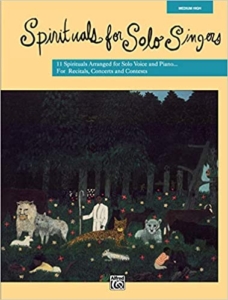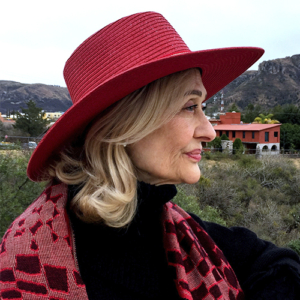As a child drying dishes while Mother washed, I witnessed her singing spirituals while looking into the orchard from the kitchen window. From Mother, I first learned about Marian Anderson for whom she appeared to hold a special “reverence.” She frequently sang from her own spiritual repertoire developed over her early years. This included the years touring with her college choir – after being influenced by four-part congregational hymn singing throughout her life. What is more heavenly than joining together with 300 voices in four-part music?
Her father – my grandfather – was a Mennonite bishop and frequent host to visiting ministers, furloughed missionaries and church workers, and a number of college presidents. As the second granddaughter to arrive on the scene, our young family – living on the farm next to Grandma and Grandpa – was sometimes invited to Sunday noon dinners with these “dignitaries.” On these occasions, Aunt Dorothy would bring out the thick Sears and Wards catalogs so that I could be propped up to join the adults at the extended table.
On these occasions, it was not unusual to join in singing around the piano following a meal. Thus, Mother had grown her music repertoire and continued to influence her daughters with music education and performance.
One number which Mother loved was Deep River, performed here by the beautiful Jessye Norman. In my adult years while living in Chicago, I would hear Jessye’s performances with both The Lyric Opera of Chicago and The Chicago Symphony.
 The Full Circle Ranch
The Full Circle Ranch
Upon returning to my hometown during our ranch years, I recalled Mother’s love of spirituals and searched for a collection of familiar numbers which we could add to our nightly singing at the piano. This collection was found at a regional music store and purchased with a birthday gift certificate given to me by one of my sisters.
On Mother’s birthday in 2001, I wrote on the inside cover, “To Mother from Dad and Swooz – 02-16-01.”
This collection created so many amazing musical moments in the years which followed! It was a magnificent gift for all of the ranchers. It can be found on Amazon.
This description from American Strings connects the pathos heard in “Deep River” with its origins in history:
“Like all spirituals, ‘Deep River’ is a song of hope and longing, expressing a desire for peace and freedom both in the present and in the afterlife. Through these melodies, slaves held on to the hope of survival.”
“Hope and longing, desiring peace” – so befitting of these days.
Author: Susan Troyer



Leave A Comment